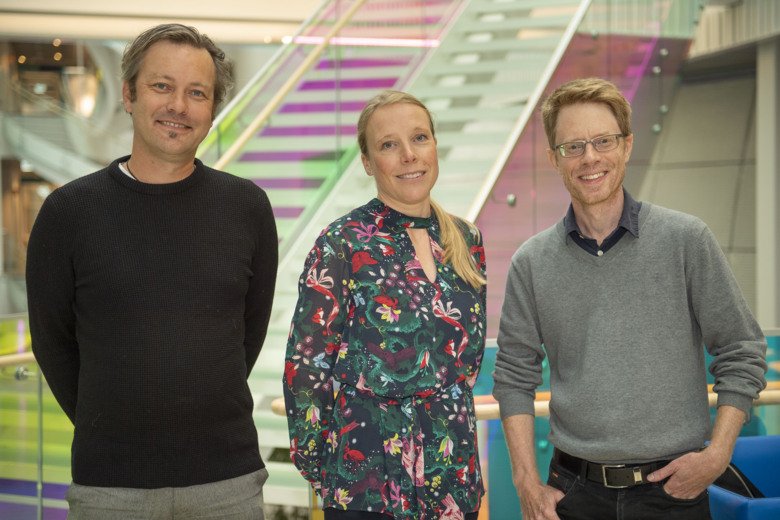KI researchers awarded 1.56 million US dollar NIH Prime grant for research on Alzheimer's disease

Docent Sara Hägg, together with a multidisciplinary team of KI researcher, has been awarded an NIH Prime Grant for their research on repurposing drugs for the primary prevention of Alzheimer’s Disease. The grant is for three years with the option to apply for additional two years.
The NIH R01 Research Project grant is an extremely competitive program even for experienced researchers within the US. This NIH Prime award is the result of a dedicated multidisciplinary team of KI researchers consisting of:
- Docent Sara Hägg at the Department of Medical Epidemiology and Biostatistics (MEB)
- Dr. Christian Riedel at the Department of Biosciences and Nutrition (BioNut)
- Docent Per Nilsson at the Department of Neurobiology, Care Sciences and Society, Division of Neurogeriatrics (NVS)
Professor Kristina Johnell and Docent Arvid Sjölander, both at the Department of Medical Epidemiology and Biostatistics (MEB), complete the team with their expertise in geriatric pharmacoepidemiology and biostatistics, respectively.
“It takes a lot of effort to apply for an NIH grant”, says Sara Hägg. “We started to work on the project outline already two years ago, so it is fantastic to finally get funded and to be able to start the project”, she continues. “The goal of the project is to find already approved drugs that could dampen the aging process and be repurposed for prevention of Alzheimer´s Disease. Our hope is that we will be able to identify such drug candidates that can be taken further into clinical testing and come to use for those in need.”
About the research
Drugs to prevent or treat Alzheimer´s disease (AD) are desperately needed, and this project proposes an innovative reverse translational approach to repurpose drugs for the primary prevention of AD. The project brings together researchers from the fields of molecular epidemiology and basic science in a cross-disciplinary effort. The multidisciplinary team will use a data-driven approach to search among drugs already used for other age-related conditions. For this purpose, causal inference epidemiological methods will be applied on deeply phenotyped longitudinal cohorts of aging as well as on Swedish registry data. The most promising candidates will be screened in human cultured cells and C. elegans, and further validated in mouse models of aging and AD pathology.
